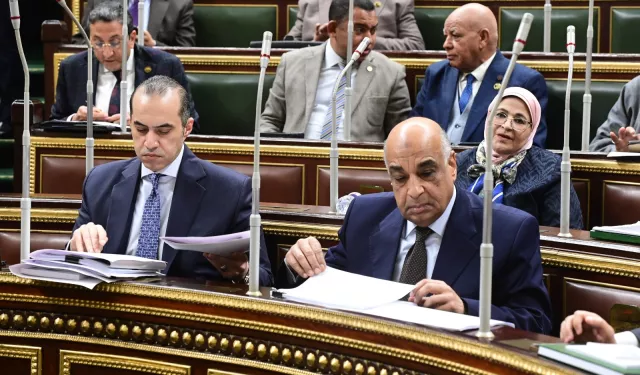Egypt’s House of Representatives pushed through a sweeping new criminal procedures law on Thursday, brushing aside presidential objections, bar association warnings, and a walkout by opposition lawmakers.
The vote followed intense debate over Article 105, one of eight clauses President Abdel Fattah El-Sisi had sent back to parliament for reconsideration. The article grants prosecutors authority to interrogate defendants without legal representation in cases where a suspect’s life is deemed at risk or time is considered critical.
In protest, the Social Democratic Party bloc exited the session, arguing the measure violates Article 54 of Egypt’s constitution, which guarantees the right to legal counsel during interrogations.
The disputed clause, now passed into law, allows questioning to proceed if a lawyer fails to arrive at the scheduled time. Appointed or delegated counsel may still join mid-session and review procedures conducted in their absence.
Lawyers' Syndicate head Abdel Halim Allam condemned the provision, calling it a flagrant breach of constitutional protections. “Any deviation from this right violates Article 54,” he declared. “Anyone who fears for this country and acts in good conscience must not go near Article 105.”
MP Ehab Eltamawy, deputy chair of the legislative committee, defended the measure, claiming it applies only in “emergency situations.” He argued Article 54 does not explicitly account for such procedural urgencies—an assertion sharply refuted by opposition MPs Ahmed El-Sharkawy and Diaa El-Din Dawood. “The constitution is clear and leaves no room for reinterpretation,” Dawood said.
Dawood further warned that the article undermines a core tenet of justice. “There’s no excuse for starting an investigation—questioning, interrogation, confrontation—without a lawyer,” he said. “The Public Prosecution wields both accusatory and investigative powers. Don’t gut this country’s legal legitimacy.”
Speaker Hanafy Gebaly avoided issuing a constitutional judgment, instead allowing the vote to move forward.
Lawmakers also approved Article 114, introducing non-custodial alternatives to pretrial detention. These include geographical movement restrictions (subject to prosecutorial approval), bans on contacting certain individuals or possessing weapons, and provisions for electronic tracking.
Parliament ratified Article 6 of the law’s issuance clauses, setting its effective date for October 1 following publication.
Another controversial clause—Article 48—was passed, authorizing law enforcement to enter homes and private premises during emergencies, including fires or floods, or “similar” threats.
President El-Sisi had previously flagged the article for its vague definition of “danger,” warning it could erode constitutional privacy protections. The eight disputed articles were part of a 552-article bill passed in April and returned by El-Sisi following pressure from local human rights groups and international bodies.
Critics condemned the legislation’s enshrinement of remote trials without safeguards, the widening powers granted to Public Prosecution over detention procedures, and provisions allowing prosecutors to restrict defense access to case files under the guise of “investigative interest.”
Rights defenders warn the law’s final form entrenches unchecked prosecutorial authority and threatens due process guarantees already weakened by years of emergency law practices.
